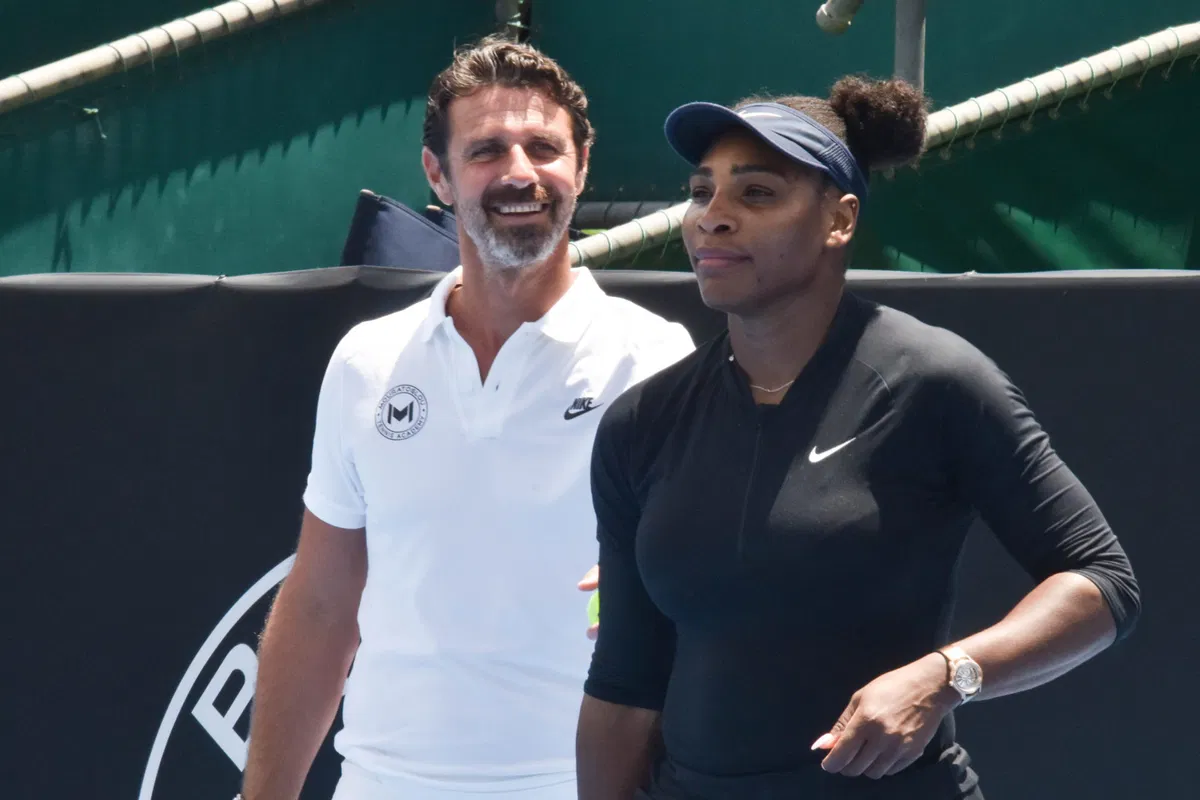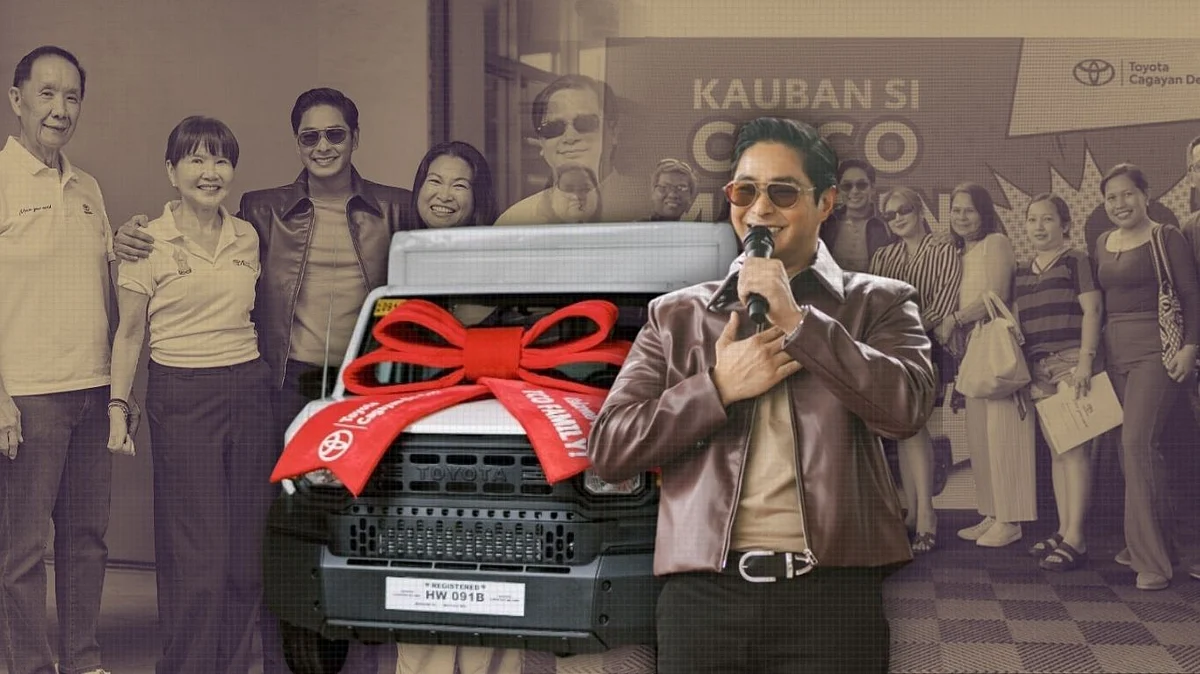
Patrick Mouratoglou might be best remembered for guiding Serena Williams back to world No. 1 and adding 10 Grand Slams to her career tally, but after speaking to him, I realised his legacy runs even deeper. His new book Champion Mindset is a blueprint for building belief, living in the ‘progress zone,’ and pushing sport itself forward with bold ideas like Ultimate Tennis Showdown (UTS).
“Confidence is built, not gifted.”
ADVERTISEMENT
Article continues below this ad
A Conversation With One of Tennis’ Great Minds
For 15 years I have interviewed athletes, coaches and power players across sport. Mouratoglou lands in a rare tier. He is one of the most influential minds in modern tennis, and after speaking to him it is obvious why.
Patrick told me that the single thing he is proudest of isn’t the Grand Slam titles he coached or the academy that bears his name. It is the battle he won with himself between the ages of 15 and 26. He stated, “When I was a teenager, I thought I had no control of anything. I thought my life was going to be a disaster. The journey I made from 15 or 16 until I was 26 changed everything. That is what I am proud of, because it was extremely difficult, and if I was able to make it, honestly anyone can.”
ADVERTISEMENT
Article continues below this ad
He believes confidence is not something you wait for, it is something you actively build. “It’s a job to learn to believe in yourself. Every small victory counts. Even getting out of bed when you don’t want to and doing the work, that is a win that builds your self-esteem. Go to bed after a day of those wins, you feel good about yourself. Go to bed after a day of defeats, you feel terrible. Over months, that is the difference between a champion and someone stuck in place,” added Mouratoglou.
Serena Williams: Zero Excuses and a Mindset Reset
When Patrick first started working with Serena Williams in 2012, she had just suffered her first-ever first-round Slam loss. They met in Wimbledon, and after she made the quarterfinals, she told him that she was happy just to be back in the top three.
Patrick recalls being shocked. “We’re talking about Serena Williams, 13 Grand Slams, and she’s happy with No. 3? That was not her. The previous two years had affected the way she thought. She was not Serena anymore.”
That moment became a turning point. Serena went on a tear, winning Wimbledon, the Olympics, the US Open and the WTA Finals, and she was back at No. 1 by year’s end. Patrick shared what separated Serena from everyone else he has coached: “Serena never used an excuse. Never. She could roll her ankle and still say, ‘I should have won on one leg.’ She believed it. Because if you find an excuse, you don’t learn from the loss. She never allowed herself to have that escape.”
He also spoke about her brutal standards, and added, “If she hit a double fault, she called it unprofessional, even if she had just hit three winners in a row. That’s the level. And yes, sometimes she was too hard on herself, but that’s who she is.”
The Progress Zone – A Lesson Beyond Tennis
Patrick’s most practical concept might be the one that applies best beyond tennis: the idea of the ‘progress zone.’ “You have your comfort zone and your progress zone. The more time you spend in the progress zone, the more you want to be there. It becomes addictive because that is where you grow. When you stay in the comfort zone, you get stuck, and the more you stay there, the less you want to leave.”
He has lived it himself, saying yes to live TV despite no experience, coaching without ever having given a tennis lesson, building an academy at 26 that became one of Europe’s premier training centres. For him, boredom lives in the comfort zone.
Naomi Osaka’s Discipline, Novak Djokovic’s Toughness
When I asked for quickfire takes, his answers were telling:
Most disciplined player: Simona Halep
Most relentless worker: Rafael Nadal
Toughest competitor: Novak Djokovic
“Novak had the crowd against him for years. He was denied to play tournaments, he refused to vaccinate, yet he still found a way to dominate. Whether you like him or not, that is toughness.”
On Naomi Osaka, Patrick was struck by her willingness to change.
“Champions are often scared to change because they might lose what makes them special. Naomi made every change I asked without hesitation. That is a champion’s attitude, to keep progressing.”
UTS – A Risk That Paid Off
Patrick might be best remembered for his success with Serena, but he says he would be happy if his legacy also includes UTS. The innovative format launched in 2020, offering 45-minute matches, mic’d-up players and no dead time.
“We needed to renew the tennis fanbase. Average age was over 60 and getting older every year. We had to make something shorter, more dynamic, more immersive. We sold out stadiums, filled 15,000 seats, broadcasted worldwide, it works.”
UTS feels less like a gimmick and more like a blueprint for where sport is heading.
Why It Stuck With Me
I cover combat sports and football as much as tennis. Patrick’s lessons travel. You do not wait for belief, you build it. You do not sit in comfort, you deliberately choose stress. You do not explain away failure, you turn it into a plan.
ADVERTISEMENT
Article continues below this ad
I closed the call asking myself: am I stacking enough small wins every day? Am I putting myself in the progress zone enough? That is the effect of Patrick Mouratoglou. He doesn’t just coach champions. He makes you want to raise your own game.



